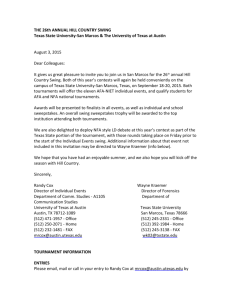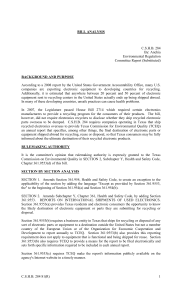electronic recycling article
advertisement
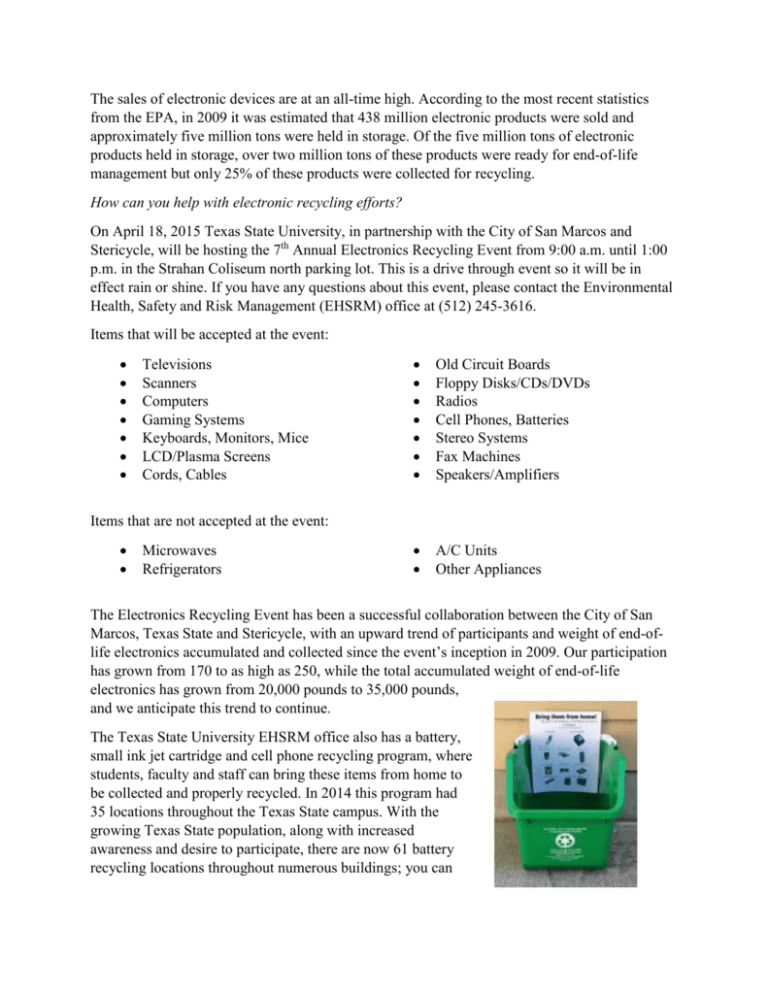
The sales of electronic devices are at an all-time high. According to the most recent statistics from the EPA, in 2009 it was estimated that 438 million electronic products were sold and approximately five million tons were held in storage. Of the five million tons of electronic products held in storage, over two million tons of these products were ready for end-of-life management but only 25% of these products were collected for recycling. How can you help with electronic recycling efforts? On April 18, 2015 Texas State University, in partnership with the City of San Marcos and Stericycle, will be hosting the 7th Annual Electronics Recycling Event from 9:00 a.m. until 1:00 p.m. in the Strahan Coliseum north parking lot. This is a drive through event so it will be in effect rain or shine. If you have any questions about this event, please contact the Environmental Health, Safety and Risk Management (EHSRM) office at (512) 245-3616. Items that will be accepted at the event: Televisions Scanners Computers Gaming Systems Keyboards, Monitors, Mice LCD/Plasma Screens Cords, Cables Old Circuit Boards Floppy Disks/CDs/DVDs Radios Cell Phones, Batteries Stereo Systems Fax Machines Speakers/Amplifiers A/C Units Other Appliances Items that are not accepted at the event: Microwaves Refrigerators The Electronics Recycling Event has been a successful collaboration between the City of San Marcos, Texas State and Stericycle, with an upward trend of participants and weight of end-oflife electronics accumulated and collected since the event’s inception in 2009. Our participation has grown from 170 to as high as 250, while the total accumulated weight of end-of-life electronics has grown from 20,000 pounds to 35,000 pounds, and we anticipate this trend to continue. The Texas State University EHSRM office also has a battery, small ink jet cartridge and cell phone recycling program, where students, faculty and staff can bring these items from home to be collected and properly recycled. In 2014 this program had 35 locations throughout the Texas State campus. With the growing Texas State population, along with increased awareness and desire to participate, there are now 61 battery recycling locations throughout numerous buildings; you can ask building administrative assistants for help finding the locations, or just look for the green box. Electronic waste and its impact on stormwater One of the newest initiatives of Texas State University is the development of a stormwater management program, which stems from the Municipal Separate Storm Sewer System (MS4) permit implemented by the Texas Commission on Environmental Quality. Stormwater is rain water that does not soak into the ground, but runs off paved surfaces, into storm drains, and flows to the nearest waterway. If electronics are not disposed of properly, components of these items such as pollutants, broken glass, and plastic can be picked up by stormwater runoff and transported directly in to our creeks and rivers untreated. Electronic products contain 100% recyclable components and should be properly disposed of to help maintain the natural waterways within the San Marcos area.
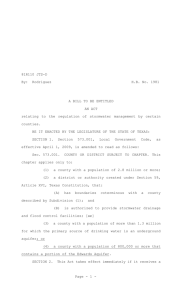

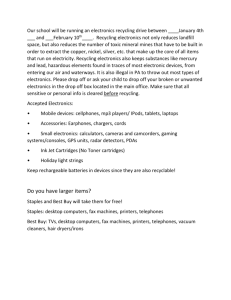



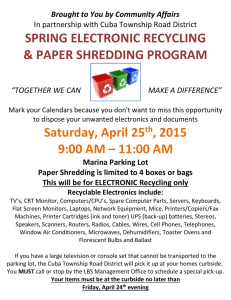
![School [recycling, compost, or waste reduction] case study](http://s3.studylib.net/store/data/005898792_1-08f8f34cac7a57869e865e0c3646f10a-300x300.png)

